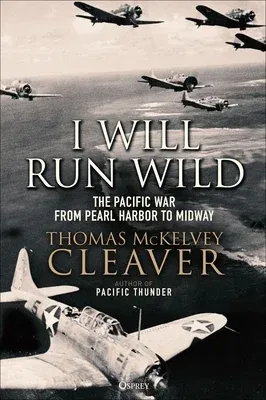This is a vivid narrative history of the early stages of the Pacific
War, as US and Allied forces desperately tried to slow the Japanese
onslaught that began with the sudden attack on Pearl Harbor in December
1941.
In many popular histories of the Pacific War, the period from the
Japanese attack at Pearl Harbor to the US victory at Midway is often
passed over because it is seen as a period of darkness. Indeed, it is
easy to see the period as one of unmitigated disaster for the Allies,
with the fall of the Philippines, Malaya, Burma, and the Dutch East
Indies, and the wholesale retreat and humiliation at the hands of Japan
throughout Southeast Asia.
However, there are also stories of courage and determination in the face
of overwhelming odds: the stand of the Marines at Wake Island; the
fighting retreat in the Philippines that forced the Japanese to take 140
days to accomplish what they had expected would take 50; the fight
against the odds at Singapore and over Java; the stirring tale of the
American Volunteer Group in China; and the beginnings of resistance to
further Japanese expansion. In these events, there are many individual
stories that have either not been told or not been told widely which are
every bit as gripping as the stories associated with the turning tide
after Midway.
I Will Run Wild draws on extensive first-hand accounts and fascinating
new analysis to tell the story of Americans, British, Dutch,
Australians, and New Zealanders taken by surprise from Pearl Harbor to
Singapore that first Sunday of December, 1941, who went on to fight with
what they had at hand against a stronger and better-prepared foe, and in
so doing built the basis for a reversal of fortune and an eventual
victory.

